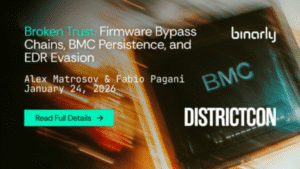Mounting balances can sneak up fast. Late fees stack, interest climbs, and the monthly budget starts to wobble. If stress spikes each time you open a bill, you likely need a clear plan and a timeline that gets you out, not just through the month.
Warning Signs Your Debt Is Unmanageable
You feel constant pressure from due dates. You move money between cards to keep payments current. You avoid answering unknown calls. Minimums eat a growing slice of your paycheck, yet the principal barely moves. The New York Fed reported rising credit card delinquencies across every age group in 2024, a signal that many households face similar strain. When these signals appear together, treating them as temporary usually prolongs the pain. Act early, document everything, and pick a target date for change.
Why Minimum Payments Keep You Stuck
Minimums look manageable, yet they extend the life of a balance. Interest compounds, and each purchase grows more expensive. Average credit card APRs sit above 20% in recent Federal Reserve data, so balances expand fast even when you pay something each month. A better approach sets a fixed payoff horizon. Pick either the avalanche method to attack the highest APR first or the snowball method to score quick wins by clearing the smallest balance first. Track progress weekly so the plan stays visible and real.
When To Seek Professional Help
Some problems need a guide. Many people worry that asking about bankruptcy means they have failed. That belief runs counter to the facts. According to bankruptcy attorneys from Ziegler Diamond Law, the law exists to give honest debtors a fresh start. A consultation clarifies your rights, the timeline, and what you can protect. You keep control when you know the rules, and clarity reduces fear.
Comparing Paths
Start with a budget that reflects reality, not hope. List every debt, rate, and minimum. Add a cushion for irregular expenses so the plan doesn’t collapse the first time a tire blows. If your credit profile allows it, a consolidation loan can replace revolving debt with a single installment payment at a lower rate. That can speed payoff and simplify cash flow.
Debt settlement targets accounts already in default and trades a lump sum for a reduced balance. This path harms credit and carries tax implications when a creditor forgives part of a debt. It fits narrow cases and works best with counsel that understands timelines, documentation, and negotiation pressure points. Bankruptcy remains the most powerful legal reset when numbers simply do not pencil out. A licensed attorney can map exemptions, eligibility, and the likely result.
Protecting Income And Assets During The Process
You need a safety moat. Build a small emergency fund to handle surprises so you do not swipe a card to fix a flat or pay for a prescription. Direct deposit a fixed amount into savings on payday and treat that transfer like rent or utilities. Call lenders before a payment date if you foresee a shortfall, since some offer hardship options that reduce or pause payments. Document every call, name, and promise. Pull free credit reports and monitor them monthly. Errors appear often, and swift disputes can lift your score faster than you expect.

Rebuilding Credit With Purpose
Fresh credit deserves careful use. Open a secured card with a small limit, charge a single recurring bill, and auto-pay in full each month. Keep utilization under ten percent to signal low risk. Add an installment tradeline only if it supports a bigger goal, like a car needed for work. Many landlords, insurers, and employers look at credit behavior, so steady, boring on-time payments build far more than a score.
Managing Stress And Setting Milestones
Debt drains mental bandwidth. Sleep gets choppy, and decision fatigue shows up at work and at home. Create a simple dashboard: total debt, target date, payoff to date, and cash reserve. Review it each Friday for five minutes. Celebrate small checkpoints, like the first month with no interest on a card or the moment your reserve hits one paycheck. Share the plan with a trusted friend or partner so support shows up when willpower dips. A clear path and outside accountability raise follow-through.
A rising balance can feel like quicksand, yet real progress starts with one decision. List the numbers, pick a path, and set dates you can measure. Ask questions early, lean on qualified guidance when the math demands it, and keep your eyes on the next small win. You have the strength to rebuild starting today.
Article received via email






























